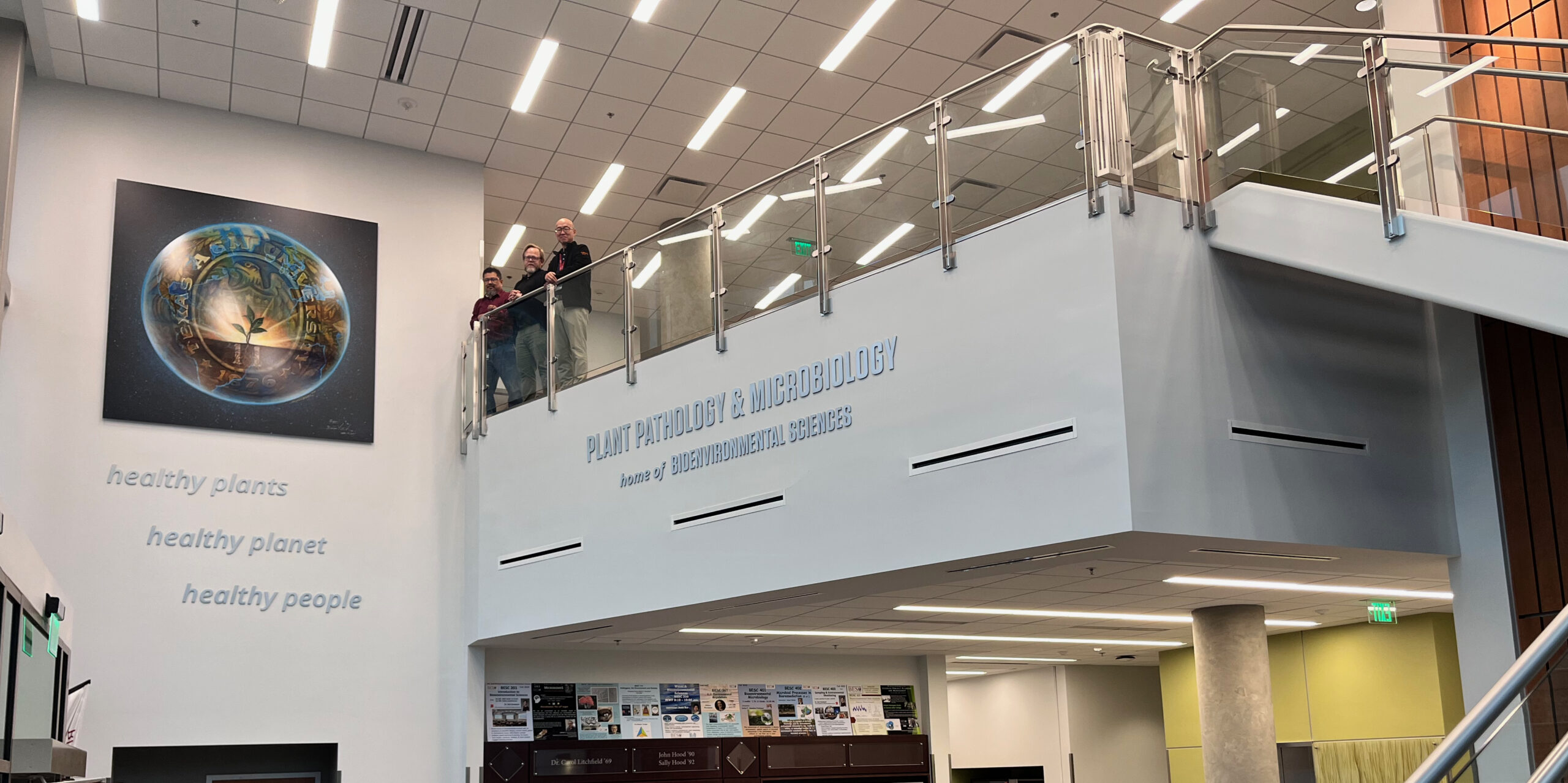
Department of
Plant Pathology & Microbiology
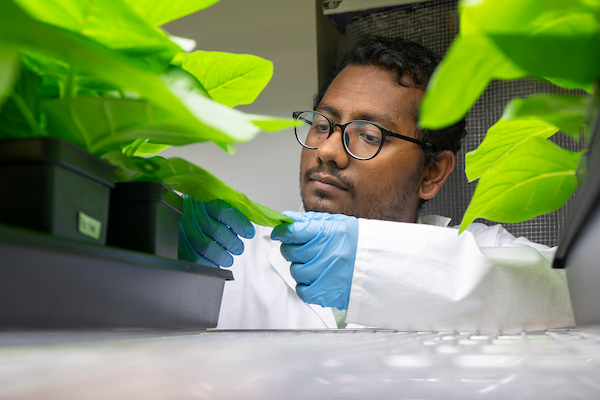
6 Degree Options
A degree in the STEM field of bioenvironmental sciences equips you to play a direct role in developing and implementing solutions to environmental problems. Our graduates often enter careers in industry or government associated with the prevention and remediation of environmental hazards, such as microbial threats, toxic wastes, and other damage to fragile ecosystems.
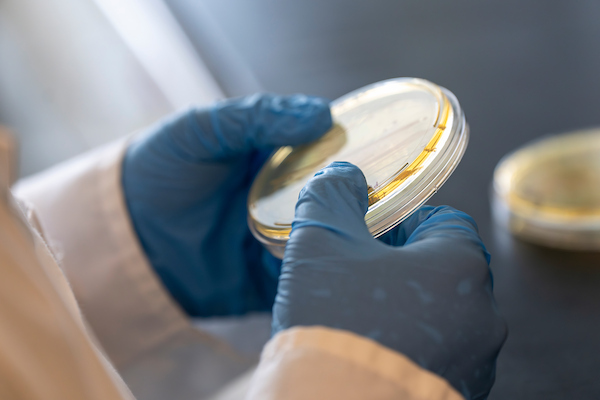
9 Research Areas
Faculty programs focus on a diversity of plant-microbe interactions, from plant innate immunity, biocontrol, host-pathogen interactions (signals, volatiles), mycotoxins, pathogenicity mechanisms, control of programmed cell death, to biofuels and bioinformatics. The department encompasses projects that attack applied problems like plant disease control with both classical and modern approaches.
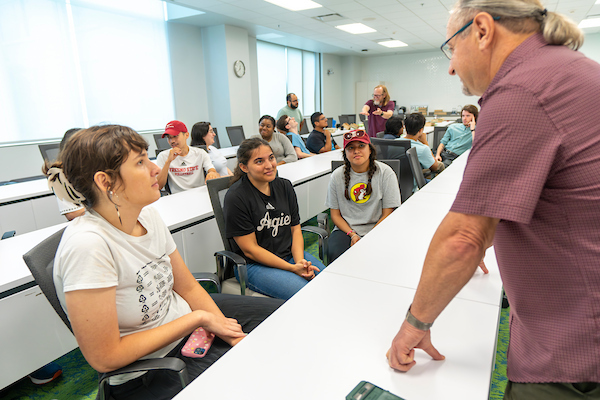
300+ Enrolled Students
Use of hands-on experiences in our classrooms, laboratories, and excellent internship opportunities ensure that you gain experience with the concepts and the technology essential for prevention, assessment, and abatement of environmental problems.
Plant Pathology and Microbiology News

AgriLife Research leads rice delphacid and hoja blanca virus studies
Scientists mapping pest behavior, identifying viral drivers and shaping new producer guidance for 2026 planting
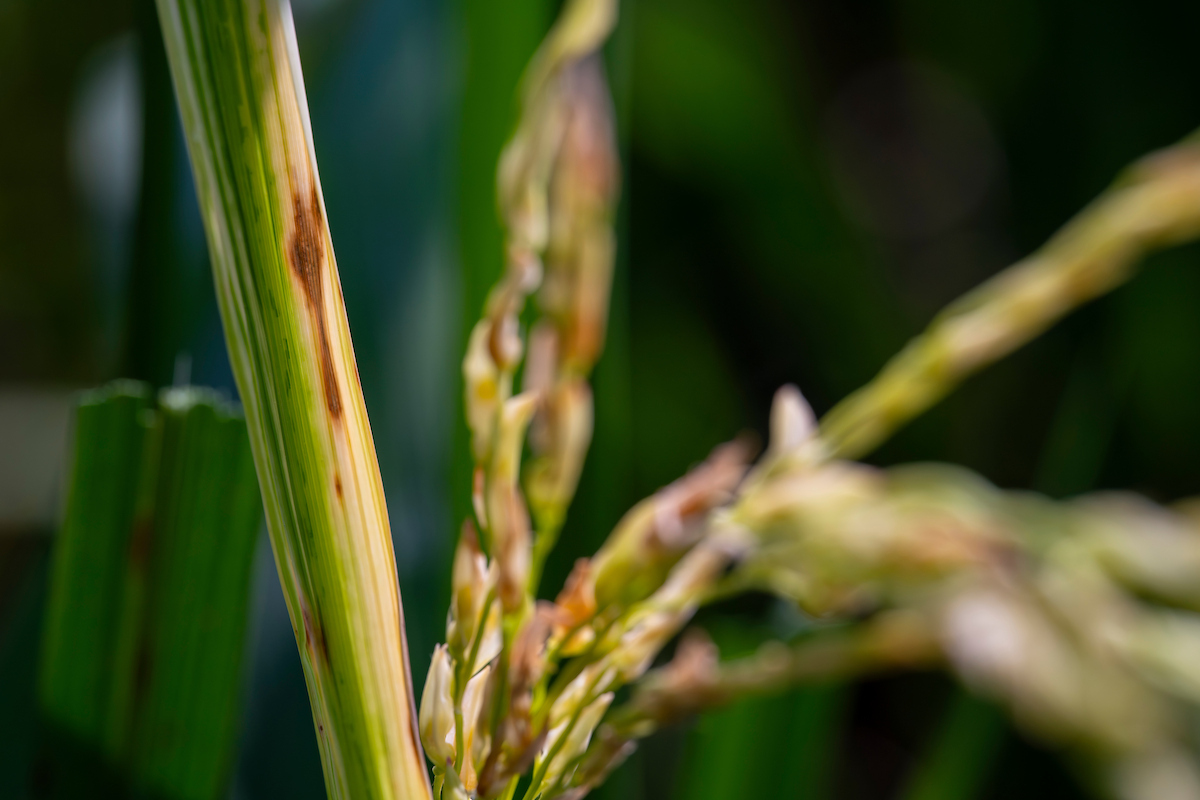
Texas A&M AgriLife tackles rice delphacid devastation
Texas A&M AgriLife experts are serving as key research and Extension partners in a new multistate response led by USA Rice to address the devastating spread of rice delphacid, an invasive pest now threatening thousands of acres across Texas, Louisiana, Arkansas and Mississippi.
Have Questions?
For degrees or admissions questions:
For general questions: